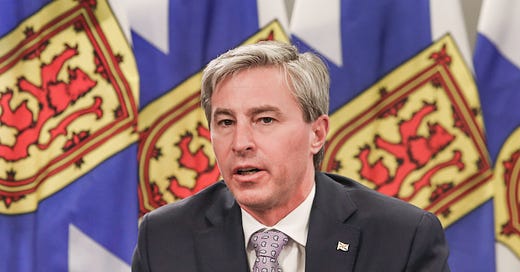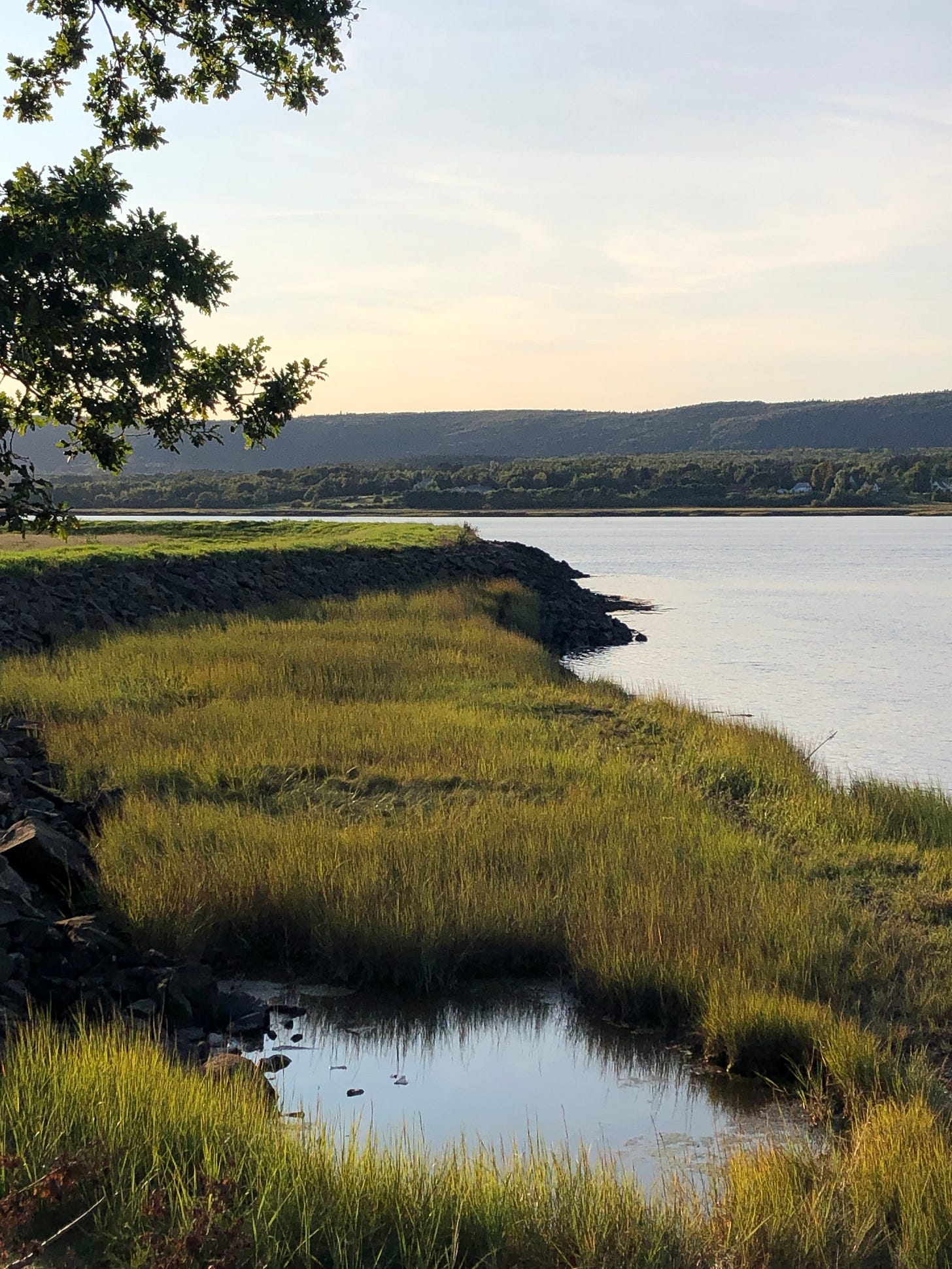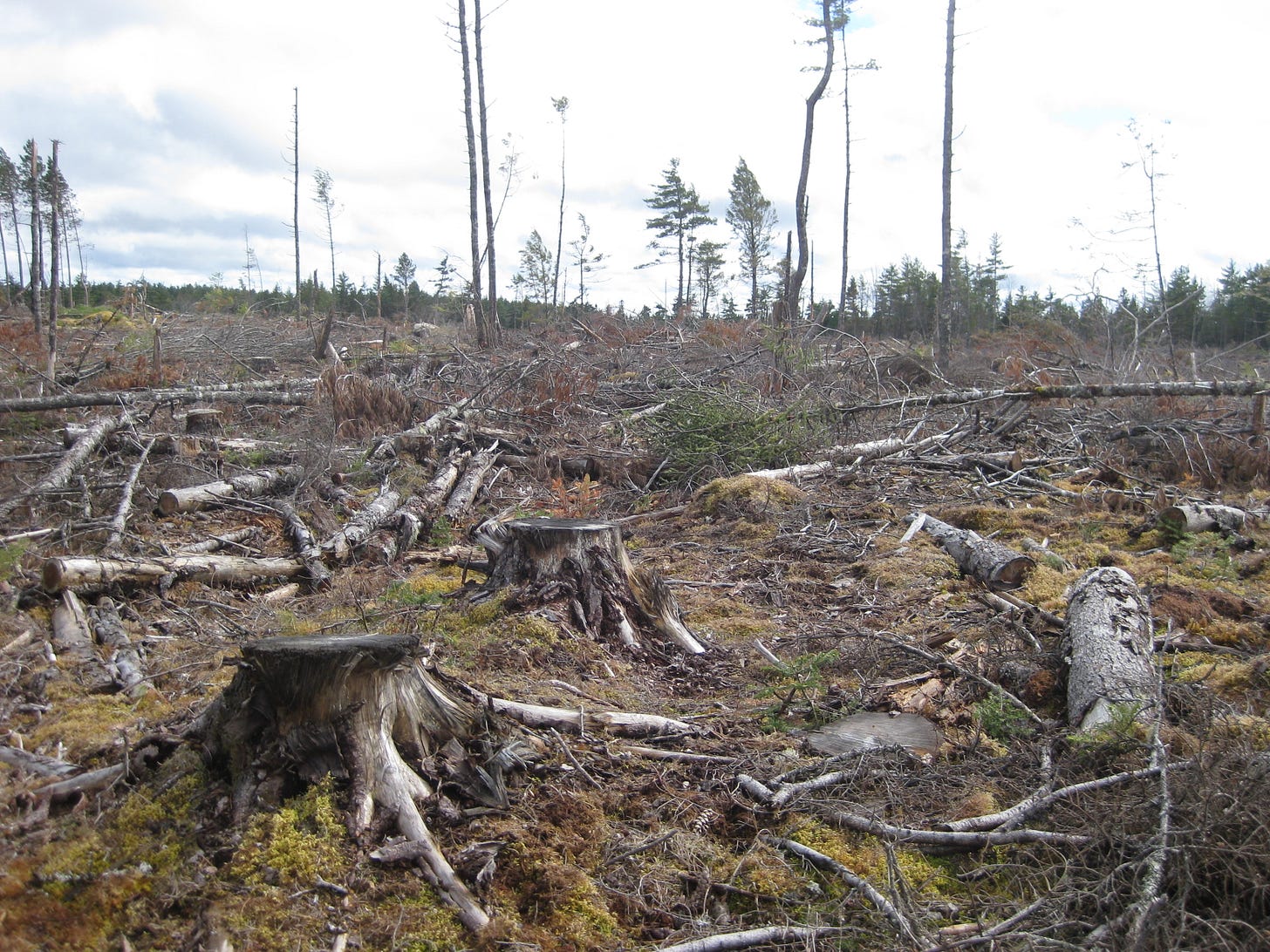Commentary: The BlackRock Boy Makes Good
Or, Premier Tim Houston reveals the long-standing corporate stranglehold on successive Nova Scotia governments and finally abandons the tether to democratic principles
Last week, the Nova Scotia government led by Premier Tim Houston introduced a series of government bills that will make them a lot less accountable, transparent, and accessible to the media and the public. They will do away with Communications Nova Scotia; give the government the ability to fire the auditor general (AG) without cause if it has the support of two-thirds of the MLAs in the legislature*; keep AG reports or portions thereof from public view; and allow deputy ministers and heads of public entities to reject freedom of information requests if they are deemed frivolous, vexatious or without enough specifics.
Houston’s government has also tabled an Omnibus bill that would repeal the existing Uranium Exploration and Mining Prohibition Act, lifting the ban on uranium exploration. He is doing the same about hydraulic fracking, which has been banned since 2014, except for research purposes.
At the PC party’s annual general meeting recently, it was reported that Houston took aim at the province’s “special interest groups” – but he wasn’t referring to the vested corporate interests that stand to profit from pillaging the province’s natural assets and polluting the environment in the process. No, he was referring to “professional protesters that we see showing up around the province.” He pointed to the scrapping of the Coastal Protection Act and said, “we pinned our ears back and did the right thing.”
In other words, Houston and the other 42 (out of 55) Progressive Conservative MLAs in government—giving him a supermajority—are finally able to do what his corporate masters have wanted all along: make sure that industrial interests are completely aligned with government policy.
Houston’s allegiances are also no surprise when you consider his history as a director and vice-president for Inter-Ocean Holdings, information that was revealed in the Paradise Papers, and according to this from the United States Securities and Exchange Commission, Houston was also a director for Bantry Holdings Ltd. and BlackRock, a multi-national investment company with more than $7 trillion in assets.
But I don’t want to overstate this. The problem we—and I mean the public—are facing is much bigger than Houston’s personal ties to vested interests. We’ve been part of a neoliberal experiment over the last several decades, which has succeeded in restricting the political power of the populace and transferring it to the private sector. Of course, this will create a lot of disgruntled people, who recognize that policy decisions are not being made in the public interest.
As I’ve written elsewhere—quoting the author and activist Arundhati Roy—the way governments then deal with growing public unrest is to “turn protesters into pets” and “vacuum up people’s fury and redirect it into blind alleys.”
Here are just a few recent examples that come to mind:
Recall when Stephen McNeil’s Liberals abandoned the Natural Resources Strategy and its citizen-led targets—a move that amounted to one of the worst public policy failures in this province’s recent history. When he decided to pull the plug on the strategy, which by the way, had never actually been put into practice, he was listening to the folks who control the forest policy: the forest industry itself, and by proxy, a cabal of company men perfectly positioned within government. In other words, the forest industry with the help of compliant bureaucrats hijacked the public will.
Then came the 2018 review of forest practices led by Professor William Lahey, the president of the University of King’s College, which identified the systemic and longstanding nature of the province’s failures and a “significant gap” between what the department says its doing to manage forestry on crown land and “how it’s actually managing forestry on crown land.” Three years after his landmark report—which so many Nova Scotians contributed to in good faith—Lahey penned a scathing evaluation of the government’s progress in implementing his recommendations: “None of the work underway on [Forest Practices Report] recommendations has resulted in much if any actual change on the ground in how forestry is being planned, managed, or conducted, and I have no indication of when any of it will.”
Then more recently, Houston’s government scrapped the Coastal Protection Act, which was passed in 2019 with all-party support—after much public consultation—but was never proclaimed. As previously mentioned, he boasted about this as being the “right thing,” at his party’s recent annual general meeting.
Houston’s government also displayed its contempt for democracy when it created a “new interpretation” of the Wetland Conservation Policy, which not only violates the original policy, but has functionally delisted potentially thousands of hectares of Wetlands of Special Significance (WSS) in the province. But what’s almost worse, is they just won’t come clean about it and have engaged in manipulative wordplay intended to mislead the public. We have a word for that: disinformation.
When the policy was originally drafted the government was given the ability to alter a WSS for what was deemed a ‘necessary public function,’ like twinning a highway, for instance. But instead, Houston’s government is using ‘necessary public function’ to justify a blanket removal of protections and the government no longer has to justify it. It’s a flagrant contradiction of the original policy and a slap in the face to all those who participated in the creation of that policy.
Auditor General’s score card on government performance like compound debt
The role of the Auditor General—as a legislated audit office, and as a watchdog—requires independence from government. It is like the democratic and accountability conscience of government. If the government can fire the auditor general without cause—Kim Adair currently holds this post—then they essentially control and can influence the office.
In other words, they can much more easily pull the wool over our eyes.
According to a recent AG “performance audit” following up on recommendations from 2019, 2020, and 2021, the government has only completed 60% of the recommendations from the AG reports dating back to 2019. The government has two years to implement recommendations and the follow up reports are meant to “assist the Public Accounts Committee, the House of Assembly, and the public to hold government accountable for timely completion of the recommendations.”
A small sampling of audit reports from 2024 alone shows the failure on the part of government to actually do its job:
· In October 2024, the AG published an audit report on Cybersecurity Readiness in Health Care, and concluded that, While the government has “prioritized expanding digital technologies to transform healthcare,” it has “failed to appropriately manage [the] risks.”
· In June 2024, Auditor Kim Adair released a report on Preventing and Addressing Violence in Nova Scotia Public Schools, and concluded there was “inadequate focus on preventing and addressing violence,” and that “educators were “not adequately supported to manage violence,” and that the department was not even aware of the “full extent of violence in schools due to significant data collection weaknesses.”
· In May 2024, a report about children in care of the province showed that a shocking lack of oversight is creating more risk for vulnerable children.
And one that is near and dear to my heart: Back in 2016 the province’s Auditor General found that the department had been derelict in its duty to protect species at risk. Instead of actually fulfilling its legal obligation to protect species at risk, the government busied itself with changing definitions (clearcut), purging terms (clearcut), renaming the department (twice, making it harder to find information), and approving clearcuts.
One of so many clearcuts on crown land in this province. This one in the Tobeatic Wildlife Management Area (Photo: Linda Pannozzo)
Province opening up to extractive industries, including fracking and uranium mining
On the same day that Nova Scotia’s governing Liberals introduced legislation to ban high volume hydraulic fracturing in the province, I happened to be on a “fracking tour” in the U.S. with a bus load of environmental journalists in a place that had instead embraced it.
It was September 30, 2014, and we were headed from New Orleans to the Louisiana/Mississippi border and the Tuscaloosa Marine Shale, an oil and gas-rich formation located in a 90-million-year-old layer of sedimentary rock sitting more than 11,000 feet below the surface. Encana Corporation had rights to the area and we were going to meet a representative to show us around one of its drilling pads.
It didn’t take long for the news of Nova Scotia’s decision to make its way to the bus load of scrappy, mostly American reporters and researchers, many of whom regularly work the energy beat. As everyone cheered and clapped it struck me that when it came to fracking, it was highly unusual for a government to act in the public interest. The legislation came on the heels of an independent panel review on the subject, headed by David Wheeler, which received nearly 240 submissions, with 92 per cent in support of a moratorium on the controversial technology.
The evidence showed that fracking can contaminate ground water and water wells, requires exorbitant amounts of water, wastes exorbitant amounts of water, and it triggers earthquakes.
Wheeler’s “go slow” approach was also recommended in 2014 by the Council of Canadian Academies (CCA) — an independent not-for-profit organization that provides “science advice in the public interest.” At the request of Environment Canada, the CCA assembled an expert panel to assess the state of knowledge regarding potential environmental impacts of fracking in Canada and it reported back that there was a “lack of peer-reviewed data on both social and environmental issues,” as well as an “absence of baseline information to assess and monitor if hydraulic fracturing is having negative, long-term and cumulative effects.” In addition, it warned about how “deep waste-water injection,” a practice used in other places to deal with the contaminated “flowback” water, may not be feasible for eastern Canada.
In other words, fracturing rock thousands of feet below the earth’s surface could lead to the chaotic, highly unpredictable, and undesirable intermingling of fluids.
Similarly, uranium mining is a potentially toxic endeavour for the miners and communities nearby. Essentially they are disaster zones where radioactive mine tailings scar the landscape, not to mention the danger to those downwind breathing in the deadly dust. Sure, the industry might claim they’ve cleaned up their act, but they cannot change the fact that even small amounts of radioactive dust, over a long period can cause lung cancer, bone necrosis and rapid anaemia.
I’ve been working recently on a series about Rosalie Bertell—who spent the better part of her life researching and writing about radiation and nuclear weaponry. In 1985 she published the book, No Immediate Danger—Prognosis for a Radioactive Earth, and in it she is very clear:
“Nuclear weapons production requires public acceptance of its support industries, such as mining, milling, transportation, refining, enrichment, fabrication, deployment, decommissioning, and waste disposal.”
Rosalie Bertell (April 4, 1929 - June 14, 2012) Author of No Immediate Danger: Prognosis for a Radioactive Earth.
A couple of years ago, a government insider close to the endangered species file and the recovery strategy process spoke to me on the condition of anonymity and pointed to the US where industry interests were spending billions through the courts and through lobbyists to “undo what had already been protected.”
We're under siege here too. It's so clear now that the actions that we are taking are really just band aids on gushers, when behind the scenes there are people working both inside and outside governments to undo it all. So, all of these permanencies that people affix to protections – everything is on the table.
As I’ve written elsewhere, our attention needs to turn to the delusional economic system that underpins the actions of Premiers like Houston. It’s that system we need to rally against and we have to stop allowing our elected representatives to funnel our time and energies into blind alleys.
In fact, maybe we should be thanking the BlackRock boy: his latest moves make it crystal clear that the corporate oligarchy, which has been coming for our democracy for quite some time, seems to have a leg up right now.
What he may not realize is that he has also woken the sleeping giant.
*Postscript: At just after 4pm today, Premier Houston announced that he “no longer supported the proposed amendments to the Auditor Genereal Act.” He said the original proposed changes “came out of a scan that looked to modernize the office by looking at best practices around Canada. This scan identified a variety of practices used across the country. There was never any intention on my part to change the existing Auditor General.” In a press release the Premier said his decision came “after discussions with the [AG] and her team.”








The "sleeping giant" needs to come fully awake. That 's us folks! Time for letters (LOTS OF THEM); op eds; and, better yet, VISITS to our MLA's. Time to set up Town Halls in cities, towns, and villages. The current government did NOT campaign on the undemocratic plans/projects they have recently put into place. Houston, we have a problem.
everything is becoming much clearer for sure, including our own involvement (or complicity) in the neo-liberal/modernist/consumerist experiment. Whenever we speak dreamily of any form of renewable energy (that requires battery storage) we give our vote to the companies that mine the kinds of minerals that we don't want to see mined on our own turf. And yet, where do we suppose these 'rare earth' minerals come from.
I don't have an answer to how we dial this back, but if we continue to always look outward towards the politicians and corporate pricks that are clearly completely disassociated from their own biological tether to a living earth; but still desire and purchase the very products that these assholes profit from, then what? ARe we not also wilfully participating in this so-called experiement. Perhaps we can say only by degree and that therefore we are somehow partially absolved. But how many people who can afford to have bought a EV in the last few years and feel morally superior to all those other folks still driving their old gas guzzling beaters? How many people have clamped solar panels to their half a million to a million dollar homes and stood back, bedazzled by their own liberal enlightenment, meanwhile upholding the kinds of municipal policies that make it impossible for a person to build a shelter that doesn't require all the bells and whistles. Because such shelters will bring down the real estate value of their renewable houses.
It's a big mess
. In the end maybe we should all be riding donkeys (or newfoundland ponies), traveling only as far as our own feet or equines can carry us and eating cabbage and turnips in the winter time.